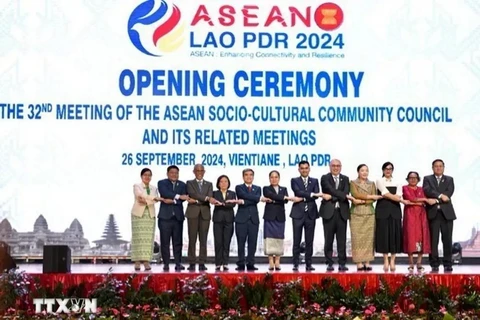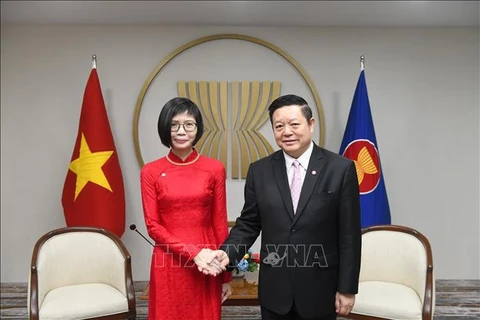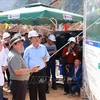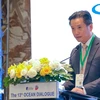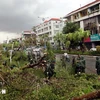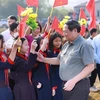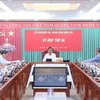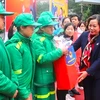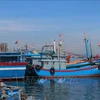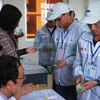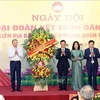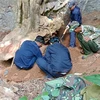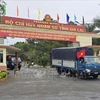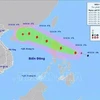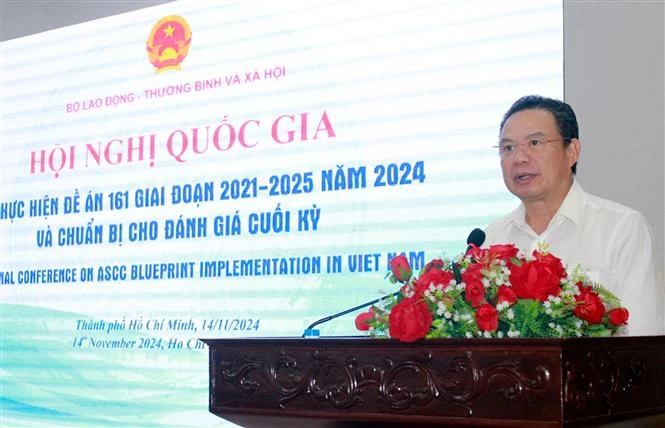
HCM City (VNA) – The Ministry of Labour, Invalids and Social Affairs (MoLISA) held a national conference in Ho Chi Minh City on November 14 to review the implementation of a project on building and implementing an action plan to realise goals of the ASEAN Socio-Cultural Community (ASCC) until 2025 (Project 161).
The conference, held both in-person and online formats, offered an opportunity for leaders from the Ministry of Foreign Affairs, the Ministry of Industry and Trade, the MoLISA and various agencies within the ASCC in Vietnam, along with local representatives and universities, as well as the ASEAN Secretariat, to update each other on the project’s progress. Participants also discussed solutions to address challenges, promoted awareness about ASEAN, and prepared for the project’s evaluation.
Addressing the event, Deputy Minister of Labour, Invalids, and Social Affairs Le Van Thanh highlighted the dedication, flexibility, and accountability shown by ministries, localities, and relevant units in integrating ASEAN goals into their policies, plans, and programmes. He emphasised that these efforts have contributed to building an inclusive, sustainable, resilient, and self-sustaining community. Notably, the Ministry of Information and Communications has submitted an action plan on ASEAN communication and promotion to the Prime Minister, along with the Ministry of Home Affairs' proposal to implement the "ASEAN Declaration on the role of the civil service as a catalyst for achieving ASEAN Community Vision 2025."
To complete Project 161 by 2025, Thanh urged ministries, agencies, and localities to mobilise resources, including social funding and support from UN agencies, non-governmental organisations, and international bodies. Focus should be placed on building a connected and people-centred community, fostering a inclusive community, promoting sustainability, enhancing resilience, and creating a dynamic ASEAN community.
Tran Duc Binh, Director of the ASEAN Department under the Ministry of Foreign Affairs, noted that a key priority for 2024 is the launch of the mid-term evaluation of ASEAN’s master plans and the development of strategic plans for the ASEAN political-security, economic, and socio-cultural communities. He affirmed that this evaluation is essential for ASEAN to continue building a dynamic, resilient community that not only safeguards people’s welfare but also drives regional growth and progress.
Jennifer Santos, an officer at the ASCC Monitoring Division of the ASEAN Secretariat, said that while ASEAN is gradually recovering from complicated challenges, it still faces issues such as climate change, natural disasters, and both traditional and non-traditional security concerns. To strengthen the ASEAN Community and address these challenges, ASEAN countries must enhance connectivity, resilience, and collaboration across ASEAN’s pillars, promote infrastructure connectivity, bridge development gaps, strengthen economic integration, and foster people-to-people exchanges. Santos also underlined the importance of maintaining the bloc's central role and relevance while strengthening ties with external partners.
Delegates exchanged updates on the progress of Project 161, priority programmes for 2024, and challenges related to resource availability, coordination mechanisms at the local level, and the role of local leadership in connecting with grassroots movements.
To prepare for the mid-term evaluation and post-2025 planning, delegates suggested enhancing information dissemination and fostering regular exchanges to ensure timely implementation of regional initiatives and specialised activities that benefit Vietnam. They also highlighted the need to encourage localities to promote capacity-building for officials in both general and ASEAN-focused integration./.
